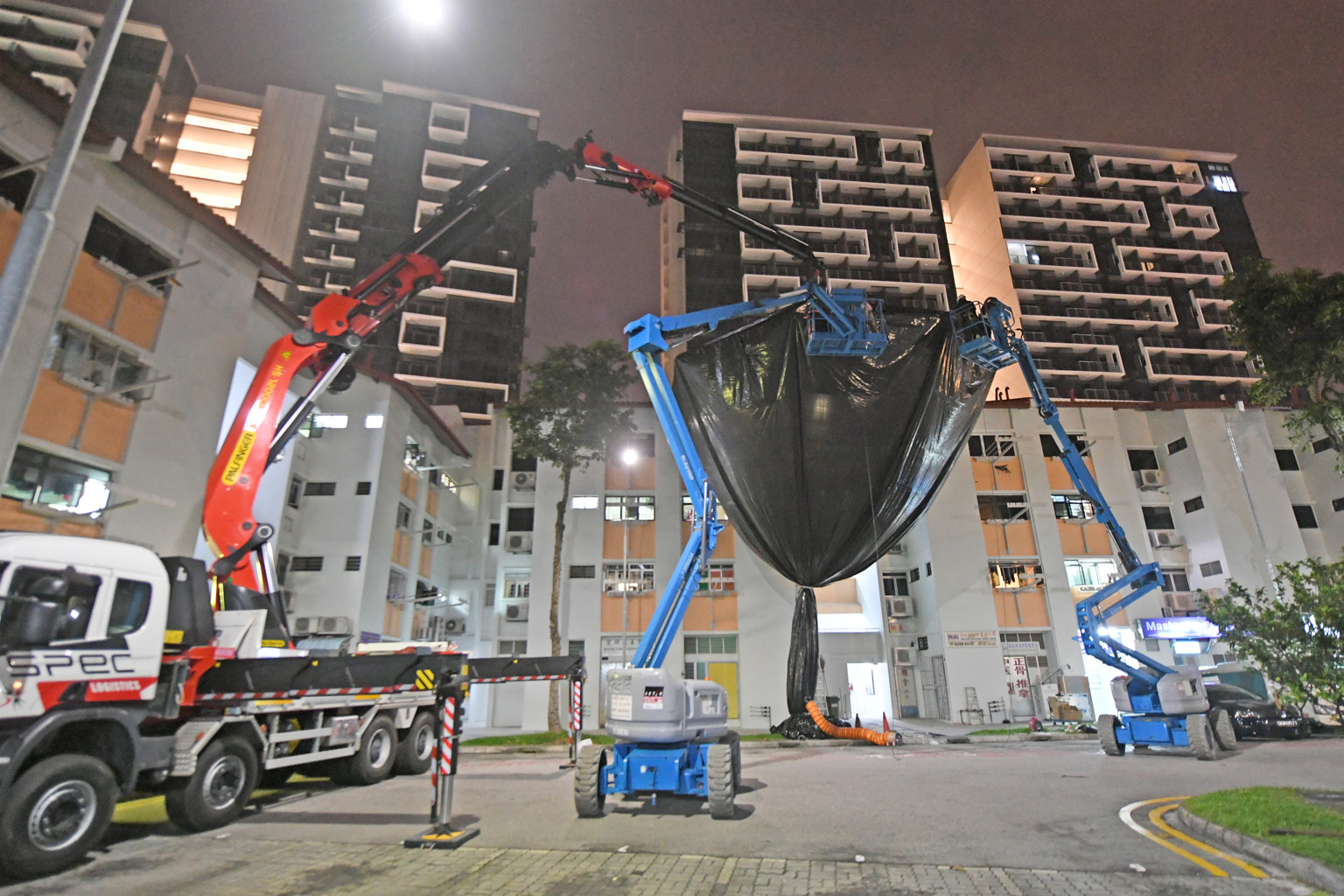Major intervention to tackle mynah issue
'Roost net' tested in Potong Pasir to remove roosting birds, after failure of other efforts
Sign up now: Get ST's newsletters delivered to your inbox

After two years of trying to solve the issue of noisy mynahs in Potong Pasir, the Agri-Food and Veterinary Authority is testing the use of a giant trap.
PHOTO: SHIN MIN DAILY NEWS
A mynah problem in Potong Pasir has required major intervention.
With more than 2,800 birds roosting in the area, the Agri-Food and Veterinary Authority (AVA) tested a "roost net" on a sea apple tree in Potong Pasir Avenue 2 on Thursday. A giant covering placed over a tree, it allows birds to enter the net and roost on the tree, but prevents them from coming out.
On Thursday evening, officers removed the net with the birds, which were then "humanely euthanised with carbon dioxide", an AVA spokesman said.
Since January, the AVA has received 20 complaints from Potong Pasir residents about the Javan mynahs - a non-native, invasive bird species that, in large numbers, poses a threat to native bird species when they compete for nesting and food resources.
Potong Pasir MP Sitoh Yih Pin had filed two parliamentary questions this year about the noise from the birds, described by a retiree who wanted to be known only as Mrs Chua as "the worst alarm clock known to man".
He has filed a third question for the Parliament sitting next month, asking the AVA to give a timeline on when the issue can be resolved.
It is not yet known how successful the net will be, but other efforts have so far failed to solve the problem.
In September, the National Parks Board pruned several Angsana trees in Upper Serangoon Road to prevent the birds from roosting on them, but this only drove them farther into the Potong Pasir heartland, residents told The Straits Times. The year before, the AVA used laser pointers over four days to deter mynahs from roosting near Potong Pasir MRT station.
The laser beams, with a power output of up to five milliwatts, are aimed around the birds to scare them away, rather than kill them.
But the method worked only when officers used the lasers. The mynahs would return later.
"It is possible that the mynahs became de-sensitised to the lasers," the spokesman said, adding that the method was not feasible.
The AVA has been working with Jalan Besar Town Council - which Potong Pasir is part of - to tackle the problem for two years.
Managing the problem "requires a holistic approach", including removing food sources and modifying the birds' habitat, she said.
She added that NParks is looking at replacing the roosting trees with ones whose "structural forms are less preferred by the Javan mynahs", like trees with less dense crowns.
She said people can also do their part by not feeding the birds and disposing of food scraps properly.
Correction note: This story was edited to reflect that the roost net was tested on a sea apple tree, not an Angsana tree.



